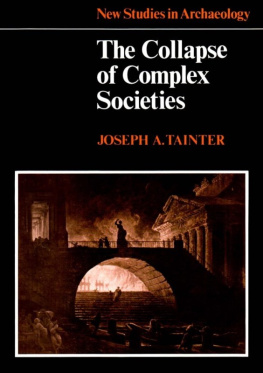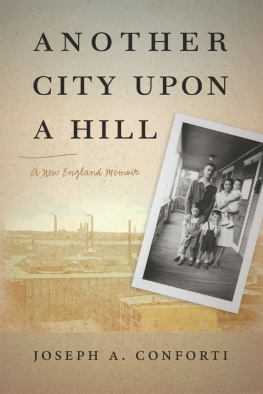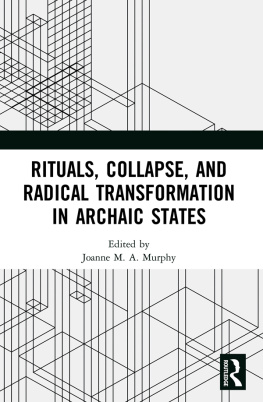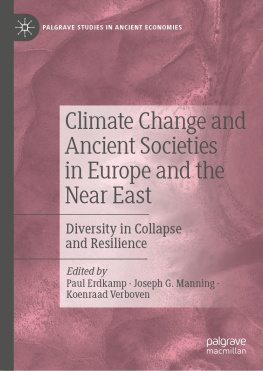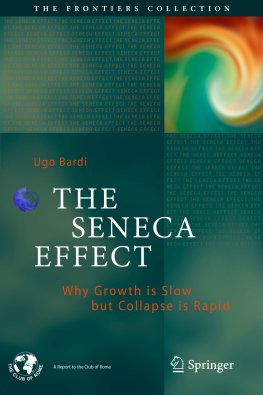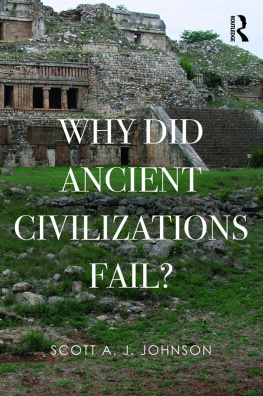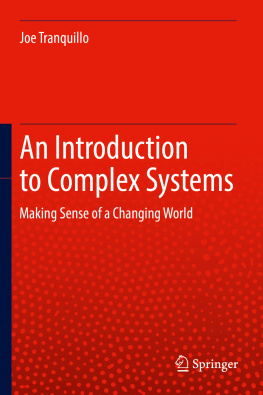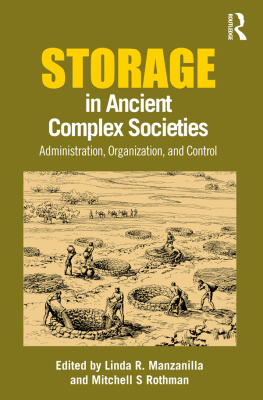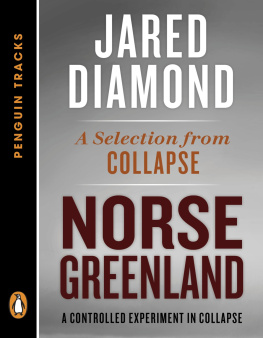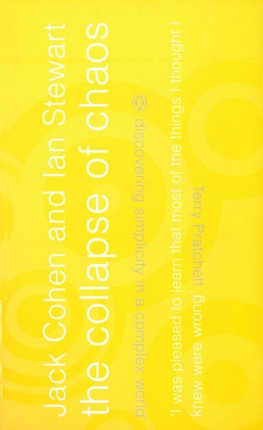Joseph A. Tainter - The Collapse of Complex Societies
Here you can read online Joseph A. Tainter - The Collapse of Complex Societies full text of the book (entire story) in english for free. Download pdf and epub, get meaning, cover and reviews about this ebook. year: 2008, publisher: Cambridge University Press, genre: Religion. Description of the work, (preface) as well as reviews are available. Best literature library LitArk.com created for fans of good reading and offers a wide selection of genres:
Romance novel
Science fiction
Adventure
Detective
Science
History
Home and family
Prose
Art
Politics
Computer
Non-fiction
Religion
Business
Children
Humor
Choose a favorite category and find really read worthwhile books. Enjoy immersion in the world of imagination, feel the emotions of the characters or learn something new for yourself, make an fascinating discovery.
- Book:The Collapse of Complex Societies
- Author:
- Publisher:Cambridge University Press
- Genre:
- Year:2008
- Rating:3 / 5
- Favourites:Add to favourites
- Your mark:
- 60
- 1
- 2
- 3
- 4
- 5
The Collapse of Complex Societies: summary, description and annotation
We offer to read an annotation, description, summary or preface (depends on what the author of the book "The Collapse of Complex Societies" wrote himself). If you haven't found the necessary information about the book — write in the comments, we will try to find it.
The Collapse of Complex Societies — read online for free the complete book (whole text) full work
Below is the text of the book, divided by pages. System saving the place of the last page read, allows you to conveniently read the book "The Collapse of Complex Societies" online for free, without having to search again every time where you left off. Put a bookmark, and you can go to the page where you finished reading at any time.
Font size:
Interval:
Bookmark:


Series editors
Colin Renfrew, University ofCambridge
Jeremy Sabloff, University ofPittsburgh
Other titles in the series include
Dean E. Arnold: Ceramic Theory and Cultural Process
Graeme Barker: Prehistoric Farming in Europe
Richard E.G. Blanton, Stephen A. Kowalewski, Gary M. Feinman and Jill Appel: Ancient Mesoamerica
Peter Bogucki: Forest Farmers and Stockherders
Graham Connah: Three Thousand Years in Africa
Geoffrey Conrad and Arthur Demarest: Religion and Empire: The Dynamics ofAztec and Inca Expansionism
John Fox: Maya Postclassic State Formation
Bo Graslund: The Birth of Prehistoric Chronology
Ian Hodder and Clive Orton: Spatial Analysis in Archaeology
Rosalind L. Hunter-Anderson: Prehistoric Adaptation in the American Southwest
Patrick Vinton Kirch: The Evolution of the Polynesian Chiefdoms
Daniel Miller: Artefacts as Categories
Olivier de Montmollin: The Archaeology of Political Structure: Settlement Analysis in a Classic Maya Polity
Ian Morris: Burial and Ancient Society: The Rise of the Greek City State
Keith Muckelroy: Maritime Archaeology
Stephen Plog: Stylistic Variation in Prehistoric Ceramics
Joseph Tainter: The Collapse of Complex Societies
Michael Shanks and Christopher Tilley: Re-Constructing Archaeology
Robin Torrence: Production and Exchange of Stone Tools
Peter Wells: Culture Contact and Culture Change
Alasdair Whittle: Problems in Neolithic Archaeology

I
The



Edward Hallett Carr once suggested that Toynbee's cyclical theory of history was the characteristic view of a society in crisis (1961: 37), and others have noted that there is often a concern with collapse at times of distress. While doubtlessly this is true, the present work reflects an interest that has lain unfulfilled since my first exposure to this topic. Its fruition owes much to two persons. Foremost is my wife, Bonnie Bagley Tainter, who encouraged me to transform my interest in collapse, and my dissatisfaction with the state of its study, into this book. Where I had in mind perhaps a few papers, she saw that only a longer treatment would suffice, and the work owes a great deal to her foresight. It was in the course of many conversations with Bonnie that the ideas presented here reached their final form. Both she and our son, Emmet, tolerated the disruption that such a work entails, for the nearly two years needed for research and writing, without wavering in their support. Finally, Bonnie's sharp editorial eye helped smooth the first draft into a more readable document.
Thomas King has for several years been dissatisfied with the archaeological research done in the United States under the mandate of historic preservation. To formulate a program of improvement, he organized a symposium for the 1982 Annual Meeting of the Society for American Archaeology on the subject of National Archaeological Research Topics, and invited me to make a presentation. The short paper that resulted was my first attempt to articulate what previously had been vague misgivings about the study of collapse. What is presented in these pages is an outgrowth of that paper, and of Tom's encouragement to undertake it.
A number of colleagues with whom I corresponded expressed interest in the work, and responded readily to my requests for references and papers. These were George Cowgill, T. Patrick Culbert, Michael Parker-Pearson, John Pfeiffer, Robert Sharer, Stephen Whittington, Robert Wenke, and most especially, Norman Yoffee.
Emily Garber and Carol Raish gave generously of time and effort to help obtain bibliographic materials. I am grateful to Larry Nordby of the U. S. National Park Service, and to various authors and publishers as noted in the text, who gave permission to reproduce illustrations. Sherry Holtke capably prepared Fig. 19, and Scott Shermer developed several computer-generated illustrations.
Several colleagues also, upon request, reviewed either the 1982 paper or drafts of the present work, and made welcome suggestions. These include Arthur Ireland, Christopher Peebles, Michael Schiffer, H. Wolcott Toll, Henry Wright and Norman Yoffee.
I must especially mention Colin Renfrew and Jeremy Sabloff, series editors for the New Studies in Archaeology, whose interest in the work brought it to its present form, and whose comments led to material improvements. Peter Richards, archaeology editor for Cambridge University Press, and lain White, who meticulously prepared the typescript for printing, deserve special thanks.
To all - family, colleagues, and editors - I offer my great appreciation for your help.
Joseph A. Tainter

Much of the central floodplain of the ancient Euphrates now lies beyond the frontiers of cultivation, a region of empty desolation. Tangled dunes, long disused canal levees, and the rubble-strewn mounds of former settlement contribute only low, featureless relief. Vegetation is sparse, and in many areas it is almost wholly absent. Rough, wind-eroded land surfaces and periodically flooded depressions form an irregular patchwork in all directions, discouraging any but the most committed traveler. To suggest the immediate impact of human life there is only a rare tent... Yet at one time here lay the core, the heartland, the oldest urban, literate civilization in the world.
Robert McC. Adams
(1981: xvii)
We ascended by large stone steps, in some places perfect, and in others thrown down by trees which had grown up between the crevices... we followed our guide... through the thick forest, among half-buried fragments, to fourteen monuments... one displaced from its pedestal by enormous roots; another locked in the close embrace of branches of trees, and almost lifted out of the earth; another hurled to the ground, and bound down by huge vines and creepers; and one standing, with its altar before it, in a grove of trees which grew around it, seeming to shade and shroud it as a sacred thing... The only sounds that disturbed the quiet of this buried city were the noise of monkeys...
John L. Stephens
(1850: 102-3)
The image of lost civilizations is compelling: cities buried by drifting sands or tangled jungle, ruin and desolation where once there were people and abundance. Surely few persons can read such descriptions and not sense awe and mystery. Invariably we are spellbound, and want to know more. Who were these people and, particularly, what happened to them? How could flourishing civilizations have existed in what are now such devastated circumstances? Did the people degrade their environment, did the climate change, or did civil conflict lead to collapse? Did foreign invaders put these cities to an end? Or is there some mysterious, internal dynamic to the rise and fall of civilizations? Some of us are so fascinated by these questions that we devote our lives to studying them. Most people encounter the dilemma of fallen empires and devastated cities in casual reading, or in a school course. The image is troublesome to all, not only for the vast human endeavors that have mysteriously failed, but also for the enduring implication of these failures.
Font size:
Interval:
Bookmark:
Similar books «The Collapse of Complex Societies»
Look at similar books to The Collapse of Complex Societies. We have selected literature similar in name and meaning in the hope of providing readers with more options to find new, interesting, not yet read works.
Discussion, reviews of the book The Collapse of Complex Societies and just readers' own opinions. Leave your comments, write what you think about the work, its meaning or the main characters. Specify what exactly you liked and what you didn't like, and why you think so.

